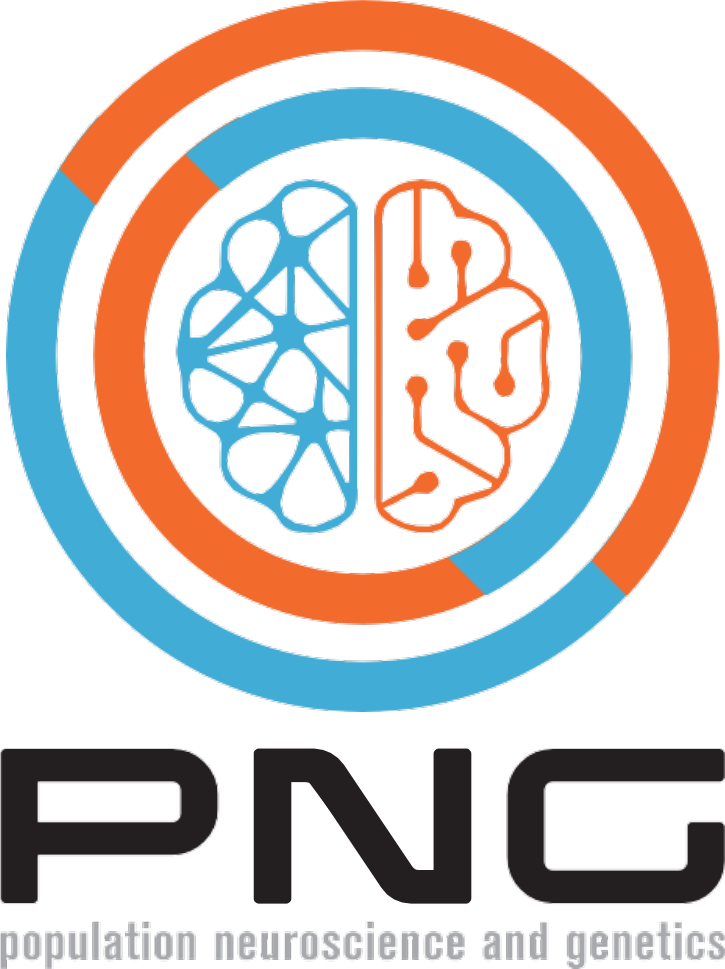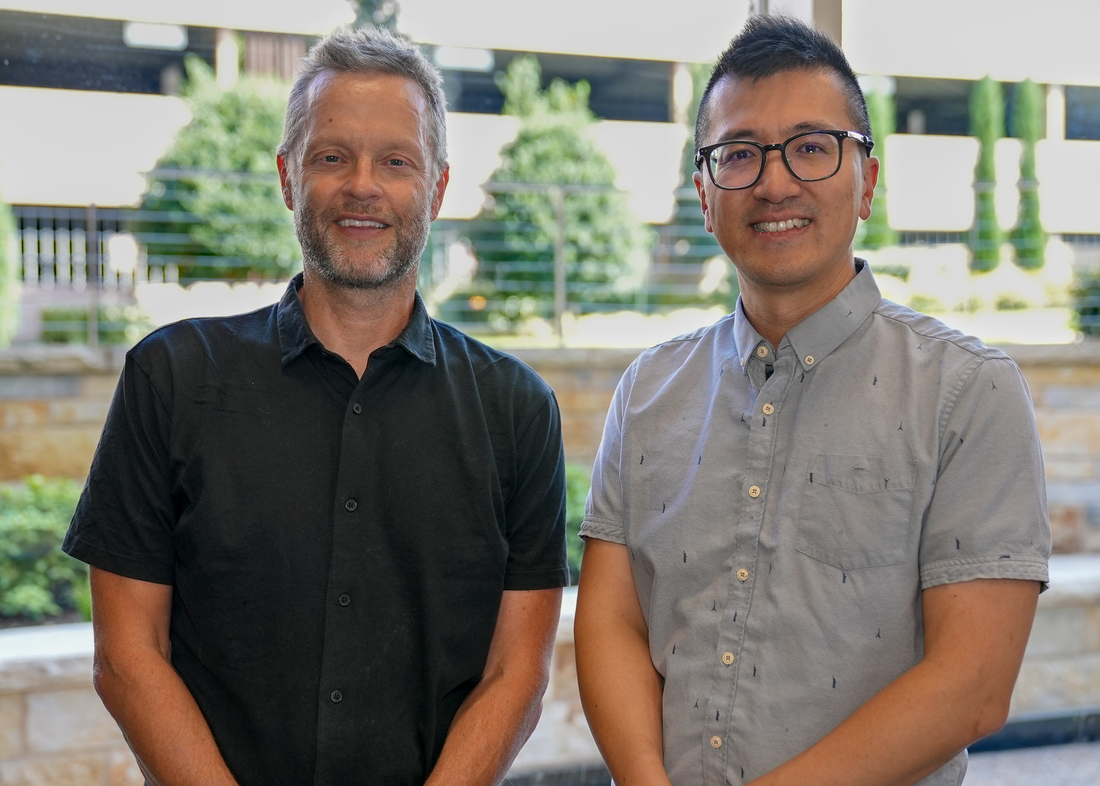PNG Center Vision
As neuroscientific studies mature to sample sizes and diversity relevant for making population inferences, the field is just beginning to realize the need for integrating multiple existing research frameworks, including epidemiology, data science, genetics and genomics, and biophysics into a consistent framework. From national health registries, to large-scale imaging cohorts, to single cell molecular assays, there is a pressing need (with corresponding funding calls from agencies) to combine multi-scale/multi-level data to understand the neurobiological basis of human behavior and mental health and to ascertain the factors impacting neuropsychiatric outcomes in diverse populations.
The Population Neuroscience and Genetics (PNG) Center addresses this need by developing and applying cutting-edge analytic methods from multiple fields (e.g., causal inference, psychometrics, high-dimensional Bayesian inference) to address these challenges under the rubric of Population Neuroscience. The multidisciplinary PNG investigative team extends an epidemiologically- and psychometrically-informed causal inference framework to neuroscientific research (existing in vivo human datasets from population registers and large-scale imaging genetic studies), developing and applying novel statistical and bioinformatic tools to critically examine the potential biases, causal pathways, and heterogeneity in longitudinal, lifespan neuropsychiatric outcomes.
With core PNG faculty and staff dedicated to curating and accessing existing large-scale datasets, building necessary bioinformatic pipelines, managing the data in-flow/out-flow, exploratory data analyses and developing novel data science tools, we are working to forge a path toward better understanding of the factors shaping human brain development, how pathological symptoms emerge, heterogeneity in prognoses, and population-level impacts of exposures and outcomes.
As a commitment to understand the diversity of the human brain, the PNG Center is dedicated to recruit and maintain highly diverse staff and collaborators. By integrating perspectives from researchers with diverse backgrounds, we will foster an environment ideally situated to focus on important public health problems, revealing causal factors underlying the heterogeneous effects and outcomes commonly-observed in population neuroscience data.
We envisage the PNG Center as a hub for fellow researchers from multiple fields (e.g., neuroscience, genetics, epidemiology, data science, statistics, psychology and psychiatry), working together to move the field toward better analytic practice, more accessible research tools, and deeper understanding of heterogeneity of neuropsychiatric outcomes at the population level. With insight gained from vertical integration of whole-brain imaging analyses, population cohorts, and detailed molecular assays, we strive to get closer to discovering leverage points for improving psychiatric well-being.
The Population Neuroscience and Genetics (PNG) Center addresses this need by developing and applying cutting-edge analytic methods from multiple fields (e.g., causal inference, psychometrics, high-dimensional Bayesian inference) to address these challenges under the rubric of Population Neuroscience. The multidisciplinary PNG investigative team extends an epidemiologically- and psychometrically-informed causal inference framework to neuroscientific research (existing in vivo human datasets from population registers and large-scale imaging genetic studies), developing and applying novel statistical and bioinformatic tools to critically examine the potential biases, causal pathways, and heterogeneity in longitudinal, lifespan neuropsychiatric outcomes.
With core PNG faculty and staff dedicated to curating and accessing existing large-scale datasets, building necessary bioinformatic pipelines, managing the data in-flow/out-flow, exploratory data analyses and developing novel data science tools, we are working to forge a path toward better understanding of the factors shaping human brain development, how pathological symptoms emerge, heterogeneity in prognoses, and population-level impacts of exposures and outcomes.
As a commitment to understand the diversity of the human brain, the PNG Center is dedicated to recruit and maintain highly diverse staff and collaborators. By integrating perspectives from researchers with diverse backgrounds, we will foster an environment ideally situated to focus on important public health problems, revealing causal factors underlying the heterogeneous effects and outcomes commonly-observed in population neuroscience data.
We envisage the PNG Center as a hub for fellow researchers from multiple fields (e.g., neuroscience, genetics, epidemiology, data science, statistics, psychology and psychiatry), working together to move the field toward better analytic practice, more accessible research tools, and deeper understanding of heterogeneity of neuropsychiatric outcomes at the population level. With insight gained from vertical integration of whole-brain imaging analyses, population cohorts, and detailed molecular assays, we strive to get closer to discovering leverage points for improving psychiatric well-being.
PNG Research Themes and Ongoing Agenda
|
Meaningful Effects / Biomedical Population Inference
Utilizing Population Registers
|
Genomic Data Methods
Vertical Integration of Neuroscience Data
|







